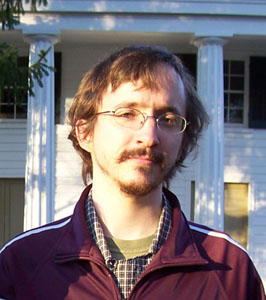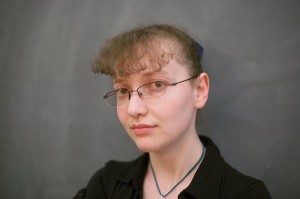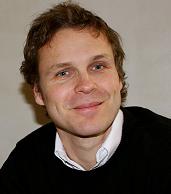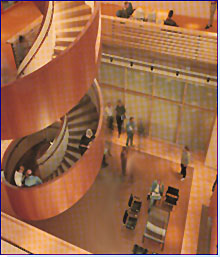At the Workshop on Infinity and Truth in Singapore last year, we had a special session in which the speakers were asked to imagine that they had been granted an audience with an all-knowing mathematical oracle, given the opportunity to ask a single yes-or-no question, to be truthfully answered. These questions will be gathered together and published in the conference volume. Here is my account.
A question for the mathematics oracle
Joel David Hamkins, The City University of New York
Granted an audience with an all-knowing mathematics oracle, we may ask a single yes-or-no question, to be truthfully answered……
I might mischievously ask the question my six-year-old daughter Hypatia often puts to our visitors: “Answer yes or no. Will you answer `no’?” They stammer, caught in the liar paradox, as she giggles. But my actual question is:
Are we correct in thinking we have an absolute concept of the finite?
An absolute concept of the finite underlies many mathematician’s understanding of the nature of mathematical truth. Most mathematicians, for example, believe that we have an absolute concept of the finite, which determines the natural numbers as a unique mathematical structure—$0,1,2,$ and so on—in which arithmetic assertions have definitive truth values. We can prove after all that the second-order Peano axioms characterize $\langle\mathbb{N},S,0\rangle$ as the unique inductive structure, determined up to isomorphism by the fact that $0$ is not a successor, the successor function $S$ is one-to-one and every set containing $0$ and closed under $S$ is the whole of $\mathbb{N}$. And to be finite means simply to be equinumerous with a proper initial segment of this structure. Doesn’t this categoricity proof therefore settle the matter?
I don’t think so. The categoricity proof, which takes place in set theory, seems to my way of thinking merely to push the absoluteness question for finiteness off to the absoluteness question for sets instead. And surely this is a murkier realm, where already mathematicians do not universally agree that we have a single absolute background concept of set. We know by forcing and other means how to construct alternative set concepts, which seem fully as legitimate and set-theoretic as the set concepts from which they are derived. Thus, we have a plurality of set concepts, and our confidence in a unique absolute set-theoretic background is weakened. How then can we sensibly base our confidence in an absolute concept of the finite on set theory? Perhaps this absoluteness is altogether illusory.
My worries are put to rest if the oracle should answer positively. A negative answer, meanwhile, would raise alarms. A negative answer could indicate, on the one hand, that our understanding of the finite is simply incoherent, a catastrophe, where our cherished mathematical theories are all inconsistent. But, more likely in my view, a negative answer could also mean that there is an undiscovered plurality of concepts of the finite. I imagine technical developments arising that would provide us with tools to modify the arithmetic of a model of set theory, for example, with the same power and flexibility that forcing currently allows us to modify higher-order features, while not providing us with any reason to prefer one arithmetic to another (unlike our current methods with non-standard models). The discovery of such tools would be an amazing development in mathematics and lead to radical changes in our conception of mathematical truth.
Let’s have some fun—please post your question for the oracle in the comment fields below.
A question for the math oracle (pdf) | My talk at the Workshop









